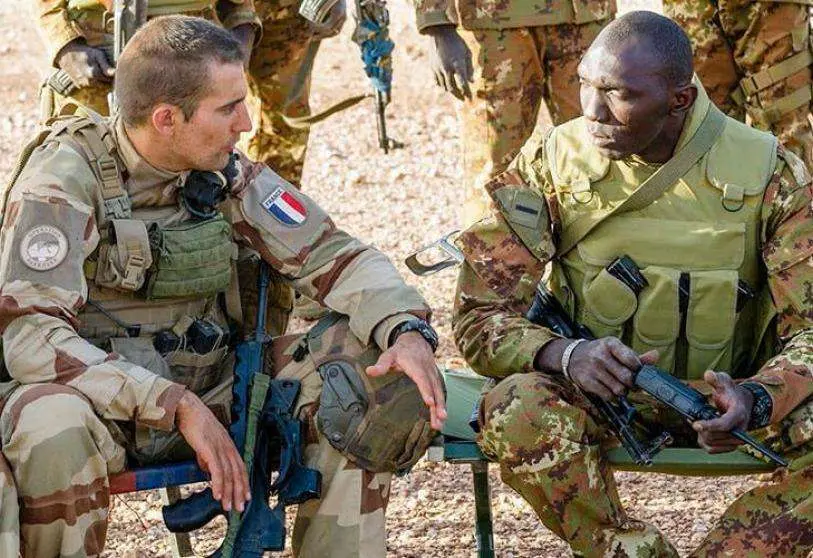Sahel terror casts a shadow over Paris

The murder of Spanish reporters David Beriáin and Roberto Fraile, claimed by a Burkinabe jihadist group, has once again brought to the table the impotence of European countries in their efforts to normalise the lives of the inhabitants of the Sahel, whose weak national sense and precarious institutions are prey to Islamist theocratic populism, which strives to build the Umma by blood and fire.
In this context, it is not entirely surprising that Emmanuel Macron's statements last February, noting his doubts about the French presence in the area, and the temptation his government had been tempted to carry out a massive withdrawal of its troops on the ground. However, despite the dozens of casualties, France does not have a strategy for an early exit from the theatre of operations that would prevent a further worsening of the situation in the Sahel and neighbouring countries.
As it is, Macron seems to be betting on buying time - by increasing the number of soldiers in the French contingent, rather than reducing it - to internationalise an anti-terrorist operation that Hollande launched eight years ago, to which more than 5,000 French soldiers are assigned, and which is a major burden on French public coffers.
While the overwhelming military superiority of French forces has enabled it to win every battle it has fought against Islamist insurgents, it has not prevented the war from being lost, resulting in an amalgam of jihadist organisations taking control of territory in much of central and northern Mali, as well as much of the 'triple frontier' area; Mali's borders with Burkina Faso and Niger; while the number of violent acts has increased tenfold since 2013.
Looking back, we see that, in reality, the failure of this intervention is in fact the elegy of France's grand vision for the Sahel, a project initiated with the Franco-British Convention of 1898, which granted France dominion over the African transition zone between the Sahara desert to the north and the Sudanese savannahs to the south, stretching across the north of the African continent between the Atlantic Ocean and the Red Sea. For this reason, the fight against militant Islamism, far from being a recent or novel phenomenon, has been a central component of French foreign policy for the past hundred years.
As early as 1918, after the collapse of the Ottoman Empire, French official reports referred to 'ridding central Africa of Muslim theocracies hostile to all civilisation and, with the action of a police force, securing free passage between the Mediterranean and tropical Africa', thus formalising a policy that had been decades in the making, by pacifying the desert lands that connected its colonial possessions in North Africa with the federation of its West African colonies, then known as Afrique Occidentale Française, which had been established in 1895 after the French occupation of Timbuktu.
France managed to impose a certain stability for 40 years, until the emergence of the decolonisation process led a group of North African representatives to write to French President Charles De Gaulle in 1958 to express their refusal to be part of an autonomous or federalist system that would homologate Black Africa and the Maghreb and give greater political weight to Saharan Africa, purely on demographic grounds. This declaration of principles was followed by numerous Tuareg rebellions, the first of which occurred in 1963 and took place in northeastern Mali near the Algerian border.
It was precisely in this mountainous massif in the Kidal region, known as Adrar of the Iforas, where the Islamic insurgency gained strength in 2013, retreating in the face of the advance of the Franco-Chadian offensive.
The bulk of the jihadist rebels, some 3,000 armed men, came from the Islamic Legion, a mercenary force founded by Muammar al-Gaddafi in the 1970s as a battering ram for his pan-Islamist fervour, and which after the fall of the Libyan dictator moved en masse to Mali to proclaim the independent state of Azawad, a kind of mercenary republic. Allied with this hard core of Tuareg origin were the Algerian Salafists who, under the brand name Al-Qaeda in the Islamic Maghreb, had taken refuge in Mali after their defeat in Algeria. It is precisely this jihadist conglomerate, whose lowest common denominator is its Maghreb origin, and which operates under the name of the Group for the Support of Islam and Muslims, led by the Tuareg Iyad Ag Ghaly, which has claimed responsibility for the attack in which Beriáin and Fraile died.
The political problems that a small part of North African immigration from its former colonies, radicalised by Islamist thinking, is causing in France are well known. So much so that even a sector of the French army has felt legitimised to publicly express its disenchantment, a virtually unprecedented event in the history of the French Republic. Thus, what from a security point of view is a relatively minor problem (compared to previous terrorist phenomena on European soil, such as ETA, IRA or Brigate Rosse), empowers the jihadist groups operating in Africa, giving them the capacity to seriously influence French national policy and, consequently, to condition their military operations in the Sahel.
With such a framework, it will be difficult for France - with significant mining interests in Mali and Niger - to convince its European partners, which also have significant Maghreb populations, to create a grand coalition to intervene in the Sahel, to which they will have to contribute by increasing their military involvement and spending, so that France can reduce its own without compromising European security.

